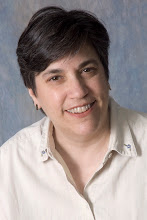In a  recent article
in The Toronto Star, Gordon Pape talked about tax efficient investments.
Depending on whether your investments generate interest, dividends or capital
gains, their tax rates vary. For example, if your income is from Canadian
dividends, you could save $157.10 of tax for every $1,000 received, compared to
interest income.
recent article
in The Toronto Star, Gordon Pape talked about tax efficient investments.
Depending on whether your investments generate interest, dividends or capital
gains, their tax rates vary. For example, if your income is from Canadian
dividends, you could save $157.10 of tax for every $1,000 received, compared to
interest income.
 recent article
in The Toronto Star, Gordon Pape talked about tax efficient investments.
Depending on whether your investments generate interest, dividends or capital
gains, their tax rates vary. For example, if your income is from Canadian
dividends, you could save $157.10 of tax for every $1,000 received, compared to
interest income.
recent article
in The Toronto Star, Gordon Pape talked about tax efficient investments.
Depending on whether your investments generate interest, dividends or capital
gains, their tax rates vary. For example, if your income is from Canadian
dividends, you could save $157.10 of tax for every $1,000 received, compared to
interest income.
As per Wikipedia,
Estate planning is the process of anticipating
and arranging for the disposal of an estate during a person's life. Estate
planning typically attempts to eliminate uncertainties over the administration
of a probate and maximize the value of the estate by reducing taxes and other
expenses.
In reality, we should start
estate planning early in life, as building your estate is step one of estate
planning.
I often get asked by people where
they should invest their money - paying off debts, paying off their mortgage,
in an RRSP, in a TFSA, in real estate, etc. There is no correct answer, as many
factors contribute to estate planning.
From a retirement perspective,
your sources of income vary by how flexible they are. That is true based on
when you can take the money, the flexibility of taking the money and how tax
efficient during both the accumulation and withdrawal phases they are. In order
of least to most flexible at retirement, most advisors would itemize them as
follows:
- OAS - money may be
claw-backed starting at incomes of $71,492
- CPP - can be started
between age 60 and 70; can be shared by spouses; is considered taxable
income
- Annuity - once started,
it continues for life; there may be guarantees; tax rates vary depending
on the source of the original funds (e.g. registered or not)
- Employment Income - is always taxed,
but you may be able to decide how much you work and earn; if you are under
65, you may need to pay CPP on this earned income
- Work Place
Pensions -
both Defined Benefit and Defined Contribution; can be shared by spouses
- RRSP - at 71 must be
converted to a RRIF or Annuity or cashed in (not recommended); watch the
attribution rule for Spousal RRSPs
- Non-registered
investments
- you paid tax through the accumulation phase, but they are normally not
taxed when you spend the money
- TFSA - growth is tax free. Current limit if you have not opened an account yet is $36,500; they are normally not taxed when you spend the money
At any stage of life, you want to
minimize the amount of tax you pay. You really need to contact a Tax Accountant
for complete advice.




No comments:
Post a Comment